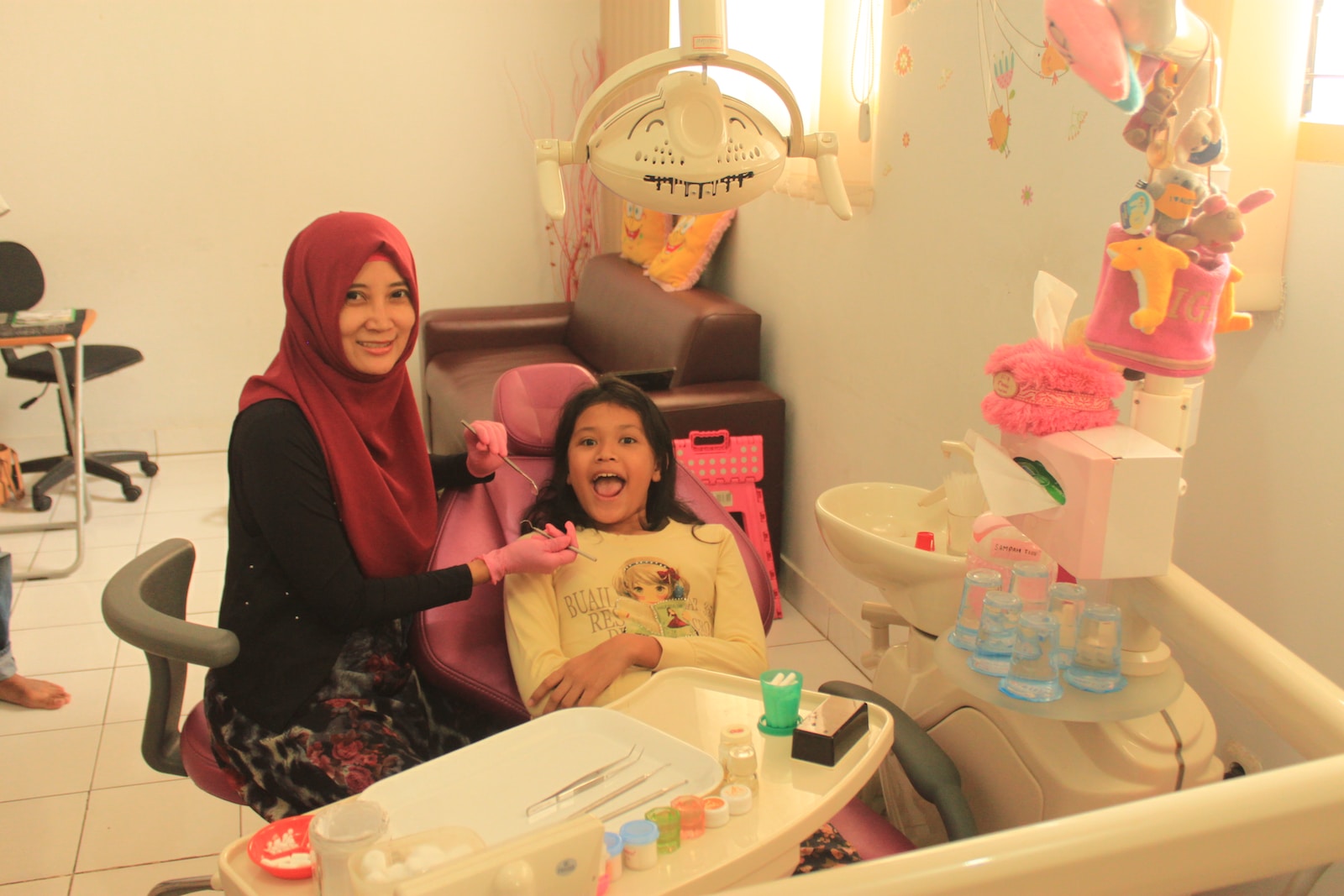Embarking on the Emotional Journey of Hearing Aids
Recognizing Your Initial Emotions Following Hearing Loss

Experiencing hearing loss often initiates a profound emotional rollercoaster. Both individuals suffering from this condition and their families are likely to find themselves navigating a multifaceted landscape of feelings that can feel overwhelming. Common emotions during this initial reaction encompass:
- Denial: Many individuals grapple with accepting the reality of their hearing impairment.
- Fear: Concerns about potential isolation and the unpredictable future can provoke significant anxiety.
- Frustration: Challenges in communication may lead to feelings of helplessness and agitation.
- Sadness: A deep sense of loss concerning previous capabilities and social interactions often surfaces.
- Anger: Some may direct feelings of anger towards themselves or the circumstances surrounding their condition.
- Confusion: The abrupt change in sensory perception can spark feelings of uncertainty and doubt.
Understanding these emotions is crucial, as they represent the initial steps in a transformative journey that will not only change how one hears but also how one engages with the surrounding world. This emotional response significantly influences the decision-making process regarding obtaining hearing aids, making it essential for both individuals and their families to acknowledge and validate these feelings.
Importance of Support from Family and Friends During This Journey
The involvement of family and friends is invaluable in supporting individuals on their hearing aid journey. Their presence can offer both emotional stability and practical assistance, both of which are vital during this transitional period. To effectively assist their loved ones, family and friends can:
- Listen actively: Foster open dialogues about feelings and apprehensions related to hearing loss.
- Be patient: Recognize that adapting to hearing aids is a gradual process that requires time.
- Encourage professional help: Aid the individual in seeking audiological assessments and the necessary support from specialists.
- Participate in learning: Engage alongside the individual in understanding how hearing aids function and how to utilize them properly.
This supportive system plays a crucial role in alleviating feelings of isolation, empowering individuals to embrace their new reality with confidence. By fostering open communication about the emotional dimensions of hearing loss, family and friends can enhance mutual understanding and fortify relationships, enabling everyone involved to navigate this journey in unison.
Identifying Early Challenges and Effective Coping Mechanisms
The initial stages of using hearing aids are often marked by significant challenges. Adjusting to the sound of one’s own voice, perceiving background noise in a new light, and navigating various social situations can be overwhelming. Implementing effective coping mechanisms can ease this transition immensely. Individuals can benefit from:
- Setting realistic expectations: Understanding that the adjustment period necessitates patience and practice.
- Gradual exposure: Begin by wearing hearing aids in quiet settings before moving on to more challenging social environments.
- Mindfulness techniques: Engage in mindfulness or relaxation exercises to alleviate anxiety tied to new experiences.
- Peer support: Join support groups or communities where shared experiences can provide comfort and valuable insights.
These strategies not only assist in adapting to the devices themselves but also foster a more positive emotional outlook. Acknowledging that challenges are an inherent part of this journey aids individuals in building resilience and encourages a proactive approach to overcoming obstacles.
What Are the Emotional Milestones During Adaptation to Hearing Aids?

As individuals acclimate to using hearing aids, they will encounter a variety of emotional milestones essential for personal growth and acceptance. Recognizing and celebrating these milestones can profoundly enhance motivation and emotional well-being. Key milestones include:
- First successful conversation: Engaging in a fulfilling interaction without strain is a significant accomplishment.
- Increased social participation: Attending gatherings and social events becomes not only possible but enjoyable.
- Feeling of independence: Gaining confidence in one’s ability to communicate effectively nurtures a sense of autonomy.
- Positive feedback from loved ones: Receiving encouragement and validation from family and friends can reinforce feelings of progress.
Celebrating these achievements, regardless of their magnitude, strengthens resolve and motivates continued use of hearing aids. Individuals should take the time to reflect on their progress and recognize the emotional growth accompanying each milestone, fostering a deeper connection with their hearing aids.
Strategies for Long-Term Emotional Well-Being with Hearing Aids
Ensuring long-term emotional well-being is crucial for the successful utilization of hearing aids. Over time, individuals seeking emotional stability can adopt various strategies to not only maintain but also enhance their quality of life. Techniques for sustaining emotional health include:
- Regular check-ins: Periodically evaluate feelings about hearing aids and their impact on daily life.
- Continuous education: Stay updated on advancements in hearing aid technology and best practices.
- Social engagement: Cultivate relationships that offer emotional support and share experiences with others who understand the journey.
- Seek professional guidance: Consider counseling or therapy to address any lingering emotional challenges.
By proactively managing emotional health, individuals can reinforce their commitment to hearing aids, ensuring these devices serve as tools for connection rather than as obstacles. This ongoing journey is about empowerment, adapting to life with renewed perspectives, and fostering meaningful relationships.
Insights from Experts on the Emotional Journey of Hearing Aids
Understanding the Psychological Impact of Hearing Aids

The psychological impact of utilizing hearing aids can be profound and varies considerably among individuals. Many report an immediate sense of relief upon regaining access to sounds and conversations that were once muted or absent. For example, a retired teacher may rediscover joy in hearing children’s laughter, which can rejuvenate their spirit and sense of purpose. Conversely, others might initially grapple with frustration, confronting not only the technical aspects of hearing aids but also the emotional baggage tied to their hearing loss.
Real-life examples highlight this complexity. One individual may find that their anxiety lessens as they engage more freely in social situations, while another might feel overwhelmed by the flood of auditory stimuli. Understanding these psychological effects is critical for audiologists and support networks, as personalized approaches can significantly enhance the emotional journey. Recognizing the emotional significance linked to sound can empower users and encourage them to embrace their hearing aids, fostering a healthier relationship with their auditory surroundings.
Strategies to Combat Stigma Surrounding Hearing Aids
Overcoming the stigma associated with hearing aids remains a significant hurdle for many individuals. This stigma can manifest as feelings of embarrassment or shame, greatly affecting one’s willingness to seek assistance. However, practical steps can be taken to address and dismantle this stigma. Individuals can:
- Educate themselves and others: Sharing knowledge about hearing loss and the benefits of hearing aids can dispel prevalent myths.
- Be open about their experiences: Discussing personal challenges candidly can foster understanding and empathy.
- Focus on the positives: Highlighting improvements in quality of life and social connections can help shift the narrative.
- Utilize social media: Engage with online communities that celebrate hearing aid use and share success stories.
These proactive measures stimulate conversations that contribute to a more accepting environment, empowering users to wear their hearing aids with pride. Through community engagement and dialogue, the stigma surrounding hearing aids can gradually diminish, enabling individuals to reclaim their voices and experiences.
Understanding Long-Term Emotional Adaptation to Hearing Aids
Long-term adaptation to hearing aids necessitates not just a physical adjustment but an emotional one as well. This journey involves acceptance and emotional growth. Key milestones in this adaptation process include:
- Acceptance of hearing loss: Coming to terms with the reality of hearing loss is essential for emotional progress.
- Integration into daily life: Successfully incorporating hearing aids into everyday routines can boost confidence.
- Developing a new identity: Individuals often redefine their self-image based on their experiences with hearing aids.
- Emotional resilience: Overcoming challenges can lead to increased emotional strength and adaptability.
Recognizing these stages enables individuals to navigate their emotions more effectively. As they advance through these milestones, they cultivate a deeper understanding of themselves and their needs, fostering a more rewarding relationship with their hearing aids.
Coping with Initial Discomfort After Getting Hearing Aids
Addressing the discomfort and frustration that often accompanies the initial use of hearing aids is critical for successful adaptation. Many users report sensations of fullness in the ears, difficulty adjusting to amplified sounds, or even mild irritation. To facilitate this adjustment period, individuals can implement several strategies:
- Follow audiologist recommendations: Adhering to professional guidance regarding usage and adjustments can alleviate discomfort.
- Gradual introduction: Start by wearing hearing aids for shorter durations before gradually increasing usage as comfort improves.
- Regular maintenance: Ensure that hearing aids are well-maintained to prevent technical issues that could exacerbate discomfort.
- Engage in positive affirmations: Encouraging self-talk can foster a more optimistic outlook during the adjustment phase.
By implementing these strategies, individuals can create a smoother transition into the world of hearing aids, ultimately leading to a more enriched auditory experience. Acknowledging discomfort as part of the journey allows for a more compassionate approach to personal growth.
Establishing Emotional Support Systems During Adaptation
Emotional support plays a pivotal role in the journey of adapting to hearing aids. Support from family, friends, and community groups can significantly enhance resilience and emotional well-being. The importance of these emotional support systems cannot be overstated. Individuals can benefit from:
- Building a support network: Connecting with others facing similar challenges fosters solidarity and understanding.
- Participating in support groups: Engaging in community meetings or online forums can facilitate the sharing of experiences and coping strategies.
- Encouraging open communication: Family and friends should promote an environment where discussions about hearing loss and emotions are welcomed.
- Seeking professional support: Therapists or counselors specializing in hearing loss can offer tailored emotional guidance.
These systems not only provide reassurance but also facilitate personal growth, allowing individuals to share their experiences and learn from one another. By nurturing these connections, users can cultivate a sense of belonging throughout their journey with hearing aids.
How Does the Emotional Journey of Hearing Aids Evolve Over Time?
Understanding the Stages of Emotional Acceptance
The emotional journey of accepting hearing aids can be categorized into distinct stages. Recognizing these stages helps individuals identify their feelings as they traverse this experience. Typical stages include:
- Shock and denial: Initially, individuals may find it challenging to accept the reality of their hearing loss.
- Anger and frustration: As the reality settles in, feelings of anger and frustration may emerge.
- Bargaining: Individuals may wish for a return to their previous hearing capabilities, struggling to come to terms with their loss.
- Acceptance: Ultimately, many reach a point of acceptance where they embrace their hearing aids as valuable tools.
These stages are not necessarily linear; individuals may revisit earlier emotions as they progress. Acknowledging this evolution allows individuals to practice self-compassion and understand that their emotional journey is part of a broader narrative of growth, ultimately leading to a healthier relationship with their hearing aids.
What Factors Influence Emotional Responses to Hearing Aids?
Numerous factors shape an individual’s emotional response to hearing aids, significantly influencing their experiences and adaptation process. Personal factors such as age, prior experiences with hearing loss, and personality traits play a critical role. Environmental conditions, including the level of support from family and friends, cultural attitudes towards hearing loss, and access to resources, can also profoundly impact emotional responses.
For instance, younger individuals surrounded by supportive friends may adapt more quickly than older adults who experience societal stigma. Similarly, those with a history of positive social interactions may find it easier to engage with their hearing aids. Understanding these variables provides insights into the diverse emotional experiences associated with hearing aids, enabling more tailored support for individuals navigating their journey.
Celebrating Milestones Throughout the Hearing Aid Journey
Recognizing milestones throughout the hearing aid journey can serve as a powerful motivator for continued use and emotional well-being. Individuals should take moments to acknowledge key milestones, which may include:
- First steps in using aids: Simply starting to wear hearing aids is a noteworthy achievement.
- Improved communication: Notable enhancements in conversations can be celebrated.
- Increased social activity: Re-engaging in social events is an important victory.
- Emotional resilience: Overcoming challenges and developing coping strategies is worthy of recognition.
Acknowledging these moments reinforces a positive mindset and encourages individuals to embrace their new auditory experiences. Celebrations can be personal or shared with friends and family, creating a supportive atmosphere that nurtures ongoing growth and adaptation.
The Transformative Impact of Hearing Aids on Daily Life
Enhancing Communication and Strengthening Relationships
Hearing aids have a significant impact on communication, leading to improved relationships and a profound influence on users’ daily lives. By amplifying sounds and facilitating clearer conversations, individuals frequently discover newfound confidence in their social interactions. For example, a previously reserved person may find joy in engaging in group discussions or family gatherings, ultimately fostering stronger connections with loved ones.
Users can expect marked improvements in various social interactions, including:
- Active listening: Hearing aids empower users to engage more fully in conversations, reducing misunderstandings.
- Enhanced non-verbal communication: Users can better interpret tone and emotional cues, enriching their interactions.
- Increased participation: With improved hearing, individuals are more inclined to join group activities and events.
- Stronger relationships: Enhanced communication fosters deeper emotional connections with friends and family.
These enhancements not only improve daily interactions but also cultivate a sense of belonging and community. The revival of meaningful communication can transform relationships, underscoring the significance of hearing aids as essential tools for connection.
Boosting Confidence and Self-Esteem Through Hearing Aids
Utilizing hearing aids can lead to a remarkable enhancement in confidence and self-esteem. As individuals begin to hear more clearly, they often feel more inclined to engage with the world around them. The psychological benefits of improved hearing are profound; users frequently report feelings of empowerment and increased comfort in expressing themselves.
Hearing aids contribute to these psychological benefits in various ways:
- Reduced anxiety: As communication improves, anxiety in social situations often diminishes.
- Increased independence: Regaining the ability to hear enhances one’s sense of autonomy.
- Positive self-image: Wearing hearing aids can shift self-perceptions from “disabled” to “empowered.”
- Social acceptance: As users engage more with others, feelings of isolation can gradually fade.
This newfound confidence enables individuals to tackle new challenges, pursue interests, and engage in activities they may have previously avoided due to hearing loss. By fostering emotional growth and resilience, hearing aids become catalysts for personal transformation.
Adjusting to New Sounds and Varied Environments
Adapting to new sounds and environments is a fundamental aspect of the hearing aid journey. Individuals often encounter a rich array of sounds they may have previously overlooked, which can be both exhilarating and overwhelming. To ease this adjustment, users might consider the following tips:
- Start in quiet environments: Initiate the use of hearing aids in low-noise areas to build confidence.
- Practice active listening: Focus on different sounds, distinguishing between them to enhance auditory processing.
- Gradually increase complexity: Progress to busier environments as comfort increases, such as cafes or social gatherings.
- Manage expectations: Understand that acclimating to the influx of auditory information may take time.
These strategies can facilitate a smoother transition to new auditory experiences, making adjustment feel less daunting. By embracing the journey and practicing patience, individuals can foster a more positive association with their hearing aids, enriching their overall quality of life.
What Are the Benefits of the Emotional Journey of Hearing Aids?
Reaping the Rewards of Improved Quality of Life
The integration of hearing aids can lead to a substantially improved quality of life. As individuals adapt to their devices, many report significant enhancements across various life dimensions. Key areas of improvement often encompass:
- Social interactions: Enhanced communication results in more fulfilling relationships.
- Mental health: Diminished feelings of isolation and depression contribute to overall well-being.
- Professional opportunities: Improved hearing can bolster confidence in the workplace.
- Personal fulfillment: Greater participation in hobbies and interests enhances life satisfaction.
These improvements collectively contribute to a more enriching life experience, allowing individuals to reconnect with the world around them. By embracing hearing aids, users often find that they can engage fully in their lives, enhancing their overall sense of purpose and belonging.
Cultivating Emotional Resilience and Growth Through Hearing Aids
The journey with hearing aids can foster significant emotional resilience and personal growth. As individuals confront the challenges associated with hearing loss and the adaptation process, they often cultivate key psychological strengths that serve them well beyond their auditory journey. Critical aspects of this emotional growth include:
- Increased empathy: Navigating hearing loss can deepen one’s understanding of others facing similar struggles.
- Enhanced problem-solving skills: Overcoming barriers fosters creativity in addressing challenges.
- Boosted self-awareness: Individuals gain insights into their emotional triggers and coping mechanisms.
- Greater adaptability: Learning to adjust to new experiences builds resilience in various life areas.
This emotional growth transforms the hearing aid journey into an empowering experience, allowing individuals to emerge stronger and more self-aware. The journey becomes not just about improved hearing but also about evolving into more resilient versions of oneself.
Engaging with Community and Support Networks
Participating in community and support networks can be invaluable for individuals navigating the emotional journey of using hearing aids. These connections provide a sense of belonging and shared understanding that can greatly enhance the experience. Resources and networks available for hearing aid users include:
- Support groups: Local or online groups foster community among individuals with shared experiences.
- Educational workshops: Community centers often host workshops focusing on hearing loss and hearing aids.
- Social media communities: Platforms like Facebook and Reddit offer forums for discussion and support.
- Audiology clinics: Many clinics provide resources and information seminars for users and their families.
These resources bolster emotional resilience, equipping individuals with tools and connections to navigate their journey effectively. By actively participating in these networks, users can share their experiences, gain insights, and foster a sense of community that enriches their lives.
Improving Communication and Fostering Stronger Relationships
Hearing aids enhance communication, leading to stronger relationships and emotional connections with others. As users become more adept at conversing, they often experience a renewed sense of belonging and connection. Key ways in which hearing aids facilitate better interactions include:
- Increased clarity: Hearing aids allow for better understanding in conversations, minimizing frustration.
- Strengthened bonds: Enhanced communication fosters deeper emotional connections with loved ones.
- Encouraged participation: Users are more likely to engage in discussions and activities, enhancing relationships.
- Improved non-verbal cues: Users can better interpret facial expressions and body language, enriching interactions.
These enhancements empower individuals to build and maintain meaningful relationships, creating a positive feedback loop of connection and emotional fulfillment. By improving communication, hearing aids not only facilitate social interactions but also enhance the overall quality of relationships, highlighting the value of auditory engagement in daily life.
Effective Strategies for Navigating the Emotional Journey of Hearing Aids
Implementing Personalized Approaches to Emotional Support
Tailoring emotional support strategies to individual needs can significantly enhance the journey of adapting to hearing aids. Customizing these strategies ensures that the emotional support provided is relevant and effective. Key components of personalized support include:
- Understanding individual experiences: Recognizing that each person’s journey is unique allows for more effective emotional strategies.
- Incorporating personal interests: Engaging individuals in activities they enjoy can bolster emotional well-being.
- Encouraging self-advocacy: Empower users to articulate their needs and preferences regarding support and adjustments.
- Collaborating with professionals: Involving audiologists and therapists can create a more comprehensive support system.
By emphasizing personalization, individuals can feel more understood and supported throughout their hearing aid journey. This thoughtful approach fosters a deeper connection to the process, ultimately enhancing emotional resilience and well-being.
Seeking Professional Guidance and Counseling
Accessing professional guidance and counseling can be vital for individuals grappling with the emotional complexities of using hearing aids. These services offer invaluable insights and coping strategies tailored to the unique challenges of hearing loss. Key benefits include:
- Expert insights: Professionals can deliver customized advice based on individual experiences and emotional responses.
- Emotional processing: Counseling provides a space for individuals to process their feelings about hearing loss and adjustment.
- Coping strategies: Therapists can equip individuals with techniques to manage anxiety and frustration.
- Supportive environment: Professional settings offer a safe space to discuss sensitive topics related to hearing loss.
These services can significantly enrich the emotional journey, helping individuals build resilience and confidence in their hearing aids. By seeking professional support, users can cultivate a deeper understanding of their emotional landscape, fostering a healthier relationship with their auditory experiences.
Embracing Continuous Learning and Adaptation
Maintaining a mindset of continuous learning and adaptation is essential for a successful journey with hearing aids. Staying informed and flexible allows individuals to navigate their experiences effectively. Key strategies for continuous learning include:
- Participating in workshops: Engaging in educational seminars can enhance understanding of hearing aids and their functions.
- Networking with peers: Connecting with other users can facilitate the sharing of tips and experiences.
- Researching new technologies: Keeping abreast of advancements in hearing aid technology can inform choices and adjustments.
- Seeking feedback: Regular discussions with audiologists can lead to ongoing improvements in the use of hearing aids.
By embracing continuous improvement, individuals can cultivate adaptability and resilience throughout their journey. This proactive approach not only enhances emotional well-being but also ensures users maximize the benefits of their hearing aids, fostering a richer auditory experience.
Creating a Robust Support Network
Building a strong support network is crucial for providing emotional relief during the adjustment to hearing aids. A well-established support system can enhance resilience and foster a sense of community. Strategies for creating and maintaining a supportive network include:
- Engaging family and friends: Involve loved ones in the journey, encouraging their participation in discussions about hearing loss.
- Joining local groups: Seek out local support groups or organizations that focus on hearing loss.
- Utilizing online communities: Leverage social media platforms to connect with others who share similar experiences.
- Establishing regular check-ins: Schedule regular meet-ups or discussions to share progress and challenges.
These strategies foster a sense of belonging and connection, providing individuals with the emotional support necessary to navigate their hearing aid journey. By actively cultivating these relationships, users can feel empowered and enriched, enhancing their overall experience.
Effective Coping Mechanisms for Emotional Challenges
Developing effective coping mechanisms is essential for managing the emotional challenges associated with using hearing aids. Creating a toolkit of strategies can enhance emotional well-being and resilience. Techniques that help individuals manage their emotional experiences include:
- Practicing mindfulness: Techniques such as meditation can help individuals center themselves and alleviate anxiety.
- Engaging in physical activity: Regular exercise can boost mood and overall emotional health.
- Journaling: Writing about experiences and emotions can facilitate emotional processing and reflection.
- Identifying triggers: Recognizing situations or thoughts that elicit strong emotions can help individuals manage their responses.
By employing these coping mechanisms, individuals can empower themselves to navigate their emotional journeys with greater ease. These strategies nurture emotional resilience, ensuring a more fulfilling experience with hearing aids.
Embracing the Emotional Journey: A Path to Personal Growth
Reflecting on Personal Growth Throughout the Journey
Reflecting on personal growth can be a rewarding experience for individuals navigating their hearing aid journey. Taking time to evaluate progress can yield valuable insights into emotional development and adaptation. To facilitate this reflection, individuals can consider:
- Keeping a journal: Documenting experiences and feelings can illuminate growth and changes over time.
- Setting personal goals: Reflecting on achieved goals can reinforce the significance of progress.
- Engaging in self-assessment: Evaluating emotional responses to different situations can enhance self-awareness.
- Discussing experiences with peers: Sharing insights with others can provide perspective and validation.
This reflection process not only celebrates achievements but also fosters a deeper understanding of the emotional journey. By acknowledging personal growth, individuals can cultivate a more profound connection with their hearing aids and their overall life experience.
Inspiring Others by Sharing Experiences
Sharing personal experiences can inspire others on their journey with hearing aids. By discussing their stories openly, individuals can provide encouragement and support to those facing similar challenges. Effective ways to share experiences include:
- Utilizing social media: Share personal stories and insights on platforms to reach a broader audience.
- Participating in forums: Engage in discussions within online communities focused on hearing loss and support.
- Speaking at events: Offer to share experiences at local support groups or community gatherings.
- Writing articles or blogs: Documenting the journey in written format can serve as a powerful means to inspire others.
By taking these steps, individuals can cultivate a sense of community and empowerment, assisting others in navigating their journeys with confidence. Sharing experiences transforms personal challenges into collective strength, reinforcing the importance of connection and understanding.
Fostering a Positive Outlook for Future Experiences
Maintaining a positive outlook is essential for individuals continuing their journey with hearing aids. An optimistic perspective can significantly influence emotional well-being and adaptation. To cultivate a hopeful mindset, individuals can:
- Set future goals: Establish aspirations related to social engagement, hobbies, or personal growth.
- Visualize success: Imagine achieving desired outcomes, reinforcing positive expectations.
- Embrace new experiences: Stay open to trying new activities that can enrich life’s experiences.
- Celebrate progress: Regularly acknowledge achievements to maintain motivation and positivity.
By focusing on the potential for positive experiences, individuals can nurture resilience and optimism throughout their hearing aid journey. Looking forward fosters a mindset of growth and exploration, emphasizing the transformative power of hearing aids in enhancing life’s richness.
Frequently Asked Questions (FAQs)
What is the emotional impact of using hearing aids?
The emotional impact of using hearing aids can include improvements in confidence, reduced feelings of isolation, and enhanced social interactions. Over time, many individuals experience emotional growth and resilience as they adapt to their devices.
How can family and friends support someone with hearing loss?
Family and friends can support individuals with hearing loss by actively listening, exhibiting patience, encouraging professional help, and participating in learning about hearing aids. Emotional support is crucial during this journey.
What are common initial reactions to hearing loss?
Common initial reactions to hearing loss include denial, fear, frustration, sadness, anger, and confusion. These emotions are natural and should be acknowledged during the adjustment process.
What are effective coping mechanisms for hearing aid users?
Effective coping mechanisms for users of hearing aids include practicing mindfulness, engaging in physical activity, journaling about experiences, and identifying emotional triggers. These strategies promote emotional resilience.
How can individuals celebrate milestones in their hearing aid journey?
Individuals can celebrate milestones by recognizing significant achievements, such as improved communication, increased social participation, and personal growth. Celebrating these moments reinforces motivation and progress.
What support networks are available for hearing aid users?
Support networks for hearing aid users include local support groups, educational workshops, online communities, and audiology clinics that provide resources and information for users and their families.
How can individuals overcome the stigma associated with hearing aids?
Individuals can combat stigma by educating themselves and others about hearing loss, being open about their experiences, focusing on the benefits of hearing aids, and utilizing social media to connect with supportive communities.
What role do audiologists play in the emotional journey of hearing aid users?
Audiologists offer essential support by providing professional guidance, helping individuals navigate challenges, and ensuring that hearing aids are fitted and adjusted properly for optimal use.
Why is continuous learning important for hearing aid users?
Continuous learning is vital for hearing aid users as it helps them stay informed about advancements in technology, enhances their understanding of hearing aids, and improves overall adaptation to new auditory experiences.
How can individuals reflect on their personal growth during their hearing aid journey?
Individuals can reflect on their personal growth by maintaining a journal, setting goals, engaging in self-assessment, and discussing experiences with peers. This process promotes self-awareness and emotional development.
Explore our world on X!
The post Hearing Aids: Navigating the Emotional Journey Together appeared first on The Microsuction Ear Wax Removal Network.










